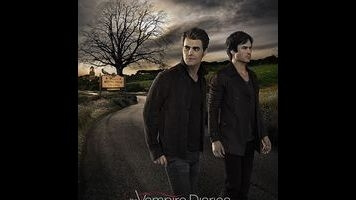The Vampire Diaries says a final, emotional goodbye

From its very beginning, The Vampire Diaries was obsessed with the idea of good and bad. Stefan was the “good” brother, Damon the “bad,” and the show then used those loose definitions to springboard eight seasons of stories that either confirmed or subverted those initial character sketches. Eventually, especially in the show’s final season, it deepened the idea to encompass the brothers’ quest for redemption, and that’s where things got a bit trickier.
The problem with focusing on the theme redemption for a cast of characters who are, at their very base characteristic, mass murderers is an intensely difficult high wire to balance a story on, and it never quite felt like the writers got a firm grasp on how to make it work. From season to season—and hell, sometimes episode to episode—one Salvatore brother was painted as the worst evil while the other was a saint, only to have the roles quickly reversed, while Elena sat in the middle as the fulcrum the two brothers’ morality balanced upon. Once Nina Dobrev left the show and Elena wasn’t there for them to orbit around, the whole thing basically fell apart.
But telling stories of confused morality and redemption isn’t necessarily what the show did best even at its peak storytelling capability, which is one of the reasons that the later seasons—which used those themes as almost a crutch—were never as strong as the show at its early-season heights. What The Vampire Diaries did best was to churn story, building a practically unparalleled streak of “holy shit” moments that lasted almost two and a half seasons before ultimately collapsing under its own weight of success. Season two is genre storytelling at its best, with constant twists and turns, great villains, and plenty of surprise stabbings to keep things interesting. The most important thing season two did, though, was up the emotional stakes with the characters in a way that assured they would be cared about long after the dizzying story speed had finally mellowed into something more sedate, paving the way for the audience to make it through some of the rougher later seasons.
Which brings us to the series finale, which takes the last two seasons of middling villains, confusing mythology, and repetitive, confused redemption stories and manages to craft them into an ending that both respects those floundering journeys and also wraps them into a package that gives each character emotional closure. The season that preceded it was certainly a mixed bag of ideas, featuring a lot of pure nonsense peppered with a few genuinely great moments, but most of those things don’t matter here, and that feels like it’s by design. Sure, the mythology of the season with Cade and the Sirens and the MacGuffin bell are all there in the background, but how the show got here isn’t nearly as important as what the characters do to fix everything in the end, which feels like the exact right choice for a series finale. In a choice between having a story I never cared about make sense or giving the characters I’ve loved for years a poignant, emotional send-off, poignancy will win every time.
